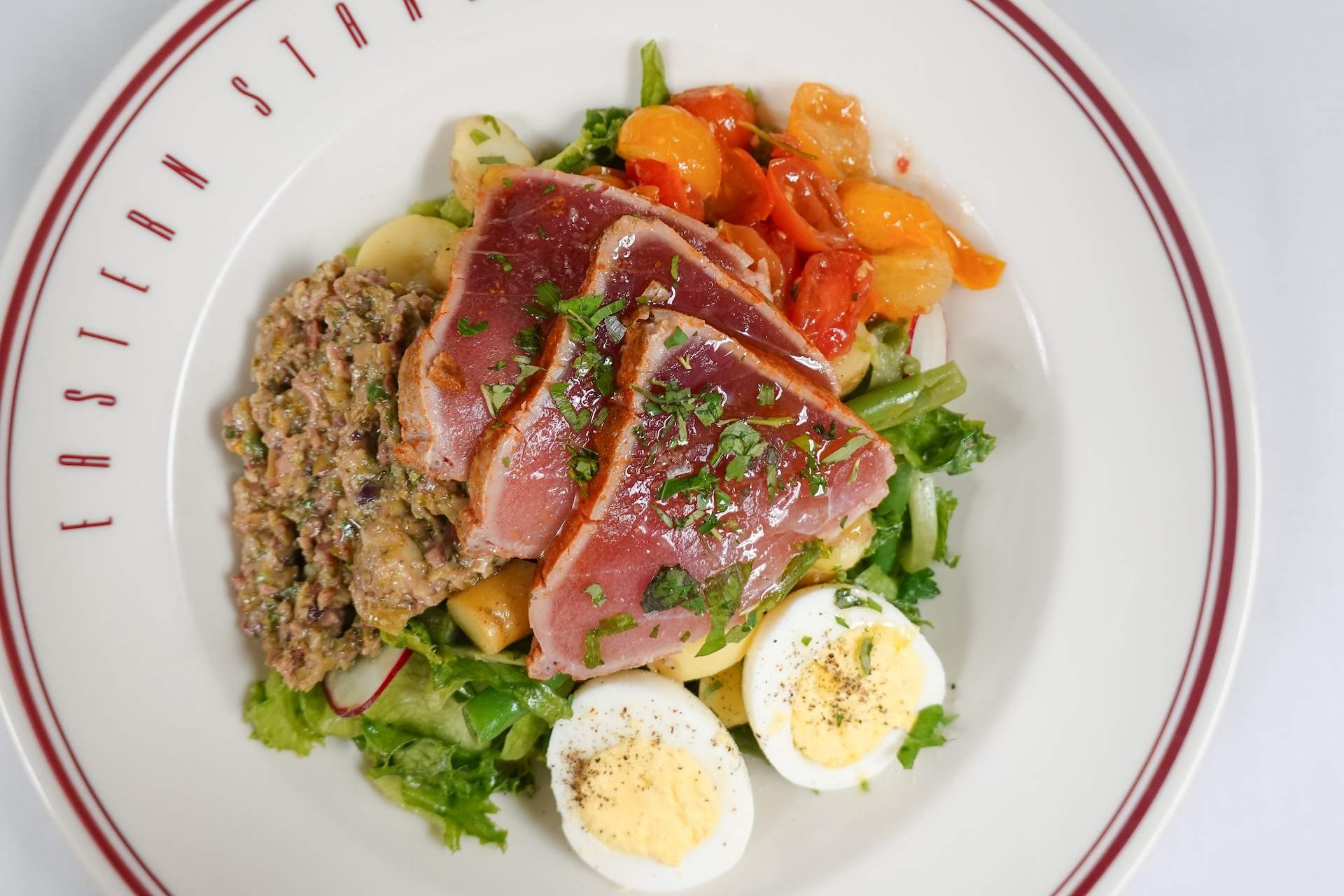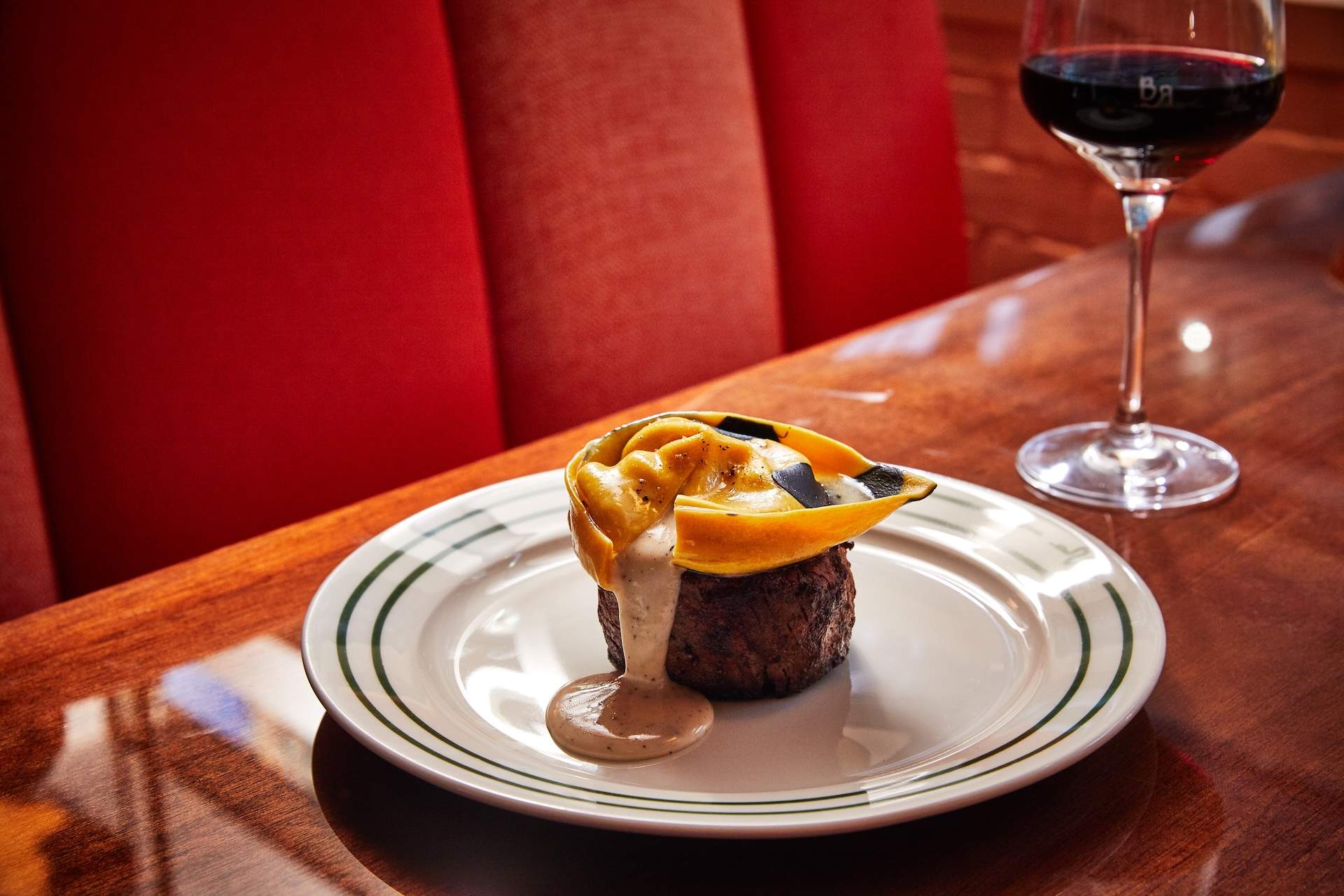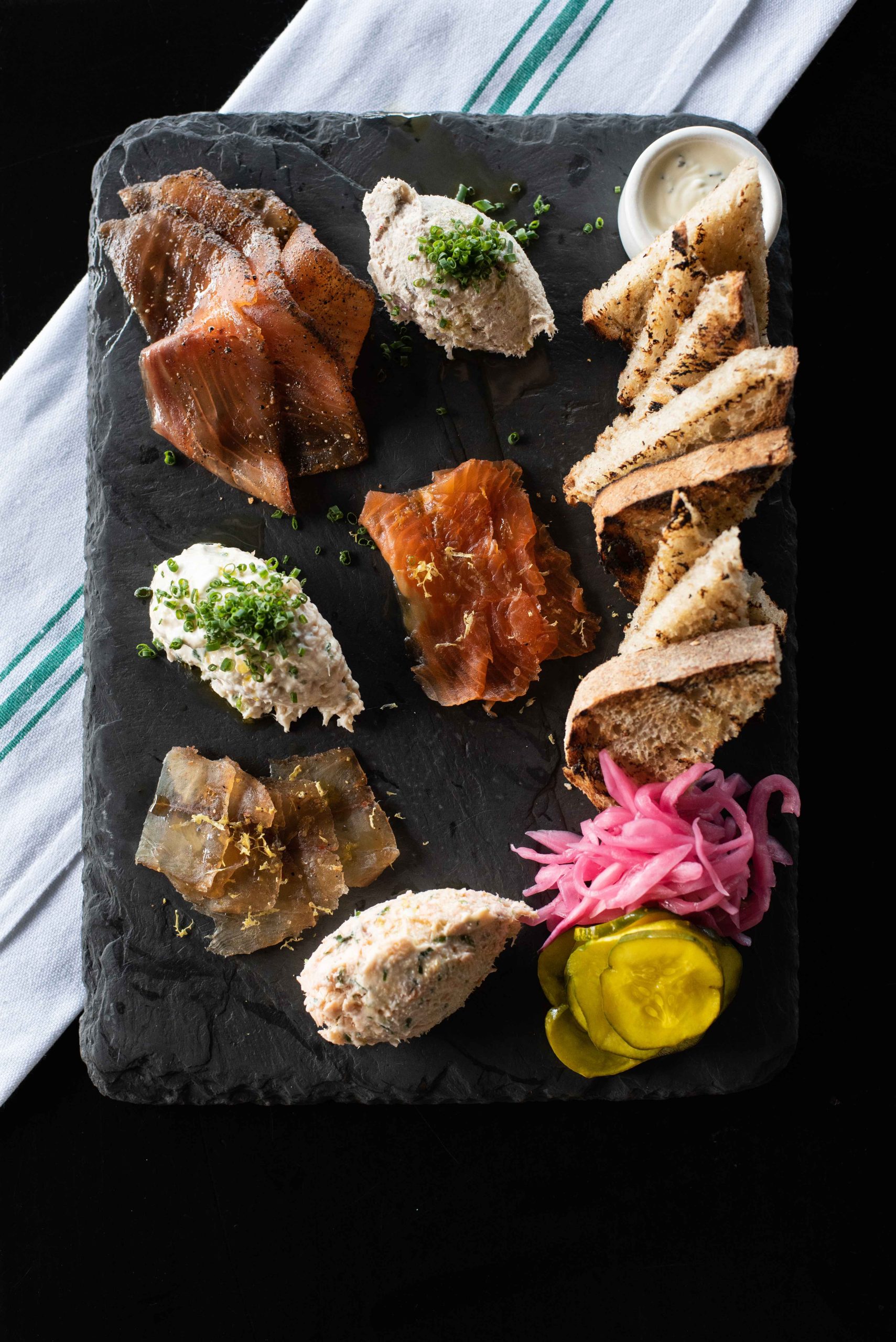Fans of Greek cuisine in Boston are undoubtedly familiar with small-plates hotspot Krasi Meze + Wine, subterranean cocktail bar Hecate, and fast-casual restaurant GreCo Truly Greek. The mini restaurant empire built by Demetri Tsolakis and Stefanos Ougrinis began in Back Bay and has since spread across the city as smoothly as honey drizzled on baklava.
Now the duo has opened Bar Vlaha, a venture that takes them a bit further afield from Boston to Brookline and on adventures across the Hellenic Republic.
The team—along with chef Brendan Pelley—spent several weeks traveling inland to the mountainous villages of central Greece and researched culinary traditions of the Vlachs, a community of nomadic shepherds. Spit-roasted meats, savory pies, and freshwater fish (as opposed to seafood from the Greek isles more commonly found at restaurants like Krasi), are all spotlit in a rustic yet refined space.

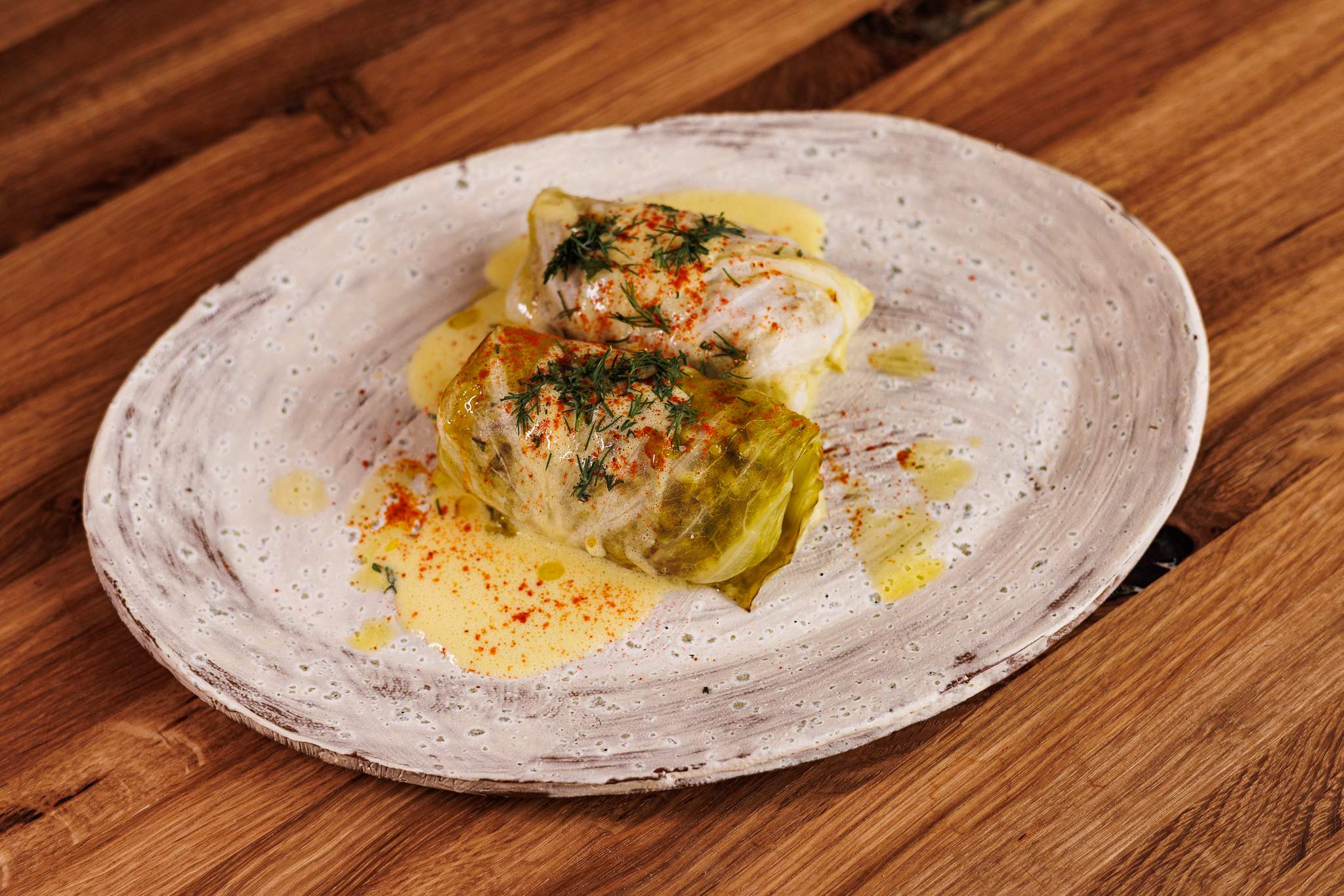
Pelley, who has Greek heritage, is no stranger to the cuisine of one of the world’s most ancient civilizations. His mom’s recipe for spanakopita was a favorite at Pelekasis, a popular popup concept he helmed in South End.
Bar Vlaha has more surprising options on the menu. Dishes such as wild foraged mushroom pie, cornmeal pie, and alevropita (a savory thin cheese pie)—all typical for communities in central Greece—star on the menu. “Everyone’s familiar with spanakopita, which we love, but here they’re going to see different styles,” Pelley says. “We’re going to have… some cool, interesting, eye-opening things.”
Tsolakis is excited to bring Boston diners an experience that’s “distinctly different from modern gastropub interpretations [that’s more focused on seafood from the Greek isles],” he says. That means instead of small, composed plates, there will be larger, family-style ones meant for sharing. Pelley’s sourdough starter will play a leading role, since breaking bread is a traditional way of offering up hospitality.
Hospitality is central to Vlach cooking. It is rooted in a tradition that came about around the sixth and seventh centuries AD, when Vlach shepherds went from village to village and were given refuge and traded food, Tsolakis says. It gave rise to philoxenia, the concept of turning a stranger into a friend. Bar Vlaha hopes to provide that type of warm service while showcasing historic cooking methods such as the use of an open charcoal flame. “When you go into these inland regions and there’s a breeze, the air smells like smoke,” Tsolakis says.
Souvla (skewered meat cooked on an open-flame grill) features prominently at Bar Vlaha, as do family-style platters of slow-cooked lamb and braised boar.
Other plates for sharing include a host of cheeses beyond feta, such as a chile-infused cheese and galotyri, a softer cheese made with sheep and goat milk ideal for spreading on Pelley’s fresh bread (using his treasured starter). “They’re really particular to certain villages,” Tsolakis says of the cheeses.
For dessert, Pelley makes ice creams, sorbets, and other frozen treats he and the Bar Vlaha team sampled during their research abroad. They are stellar pairings for dishes such as galatopita, a custardy, ruffled pie made with phyllo dough. “What you end up with is a texture and taste that’s very similar to bread pudding,” Pelley says. “It’s just so good.”
There’s also an exciting selection of baklava that swaps out butter with olive oil and is rolled instead of layered. Inside is puffy, crunchy, shredded phyllo, and the outside is sprinkled with almonds instead of the more typical walnuts or pistachios.

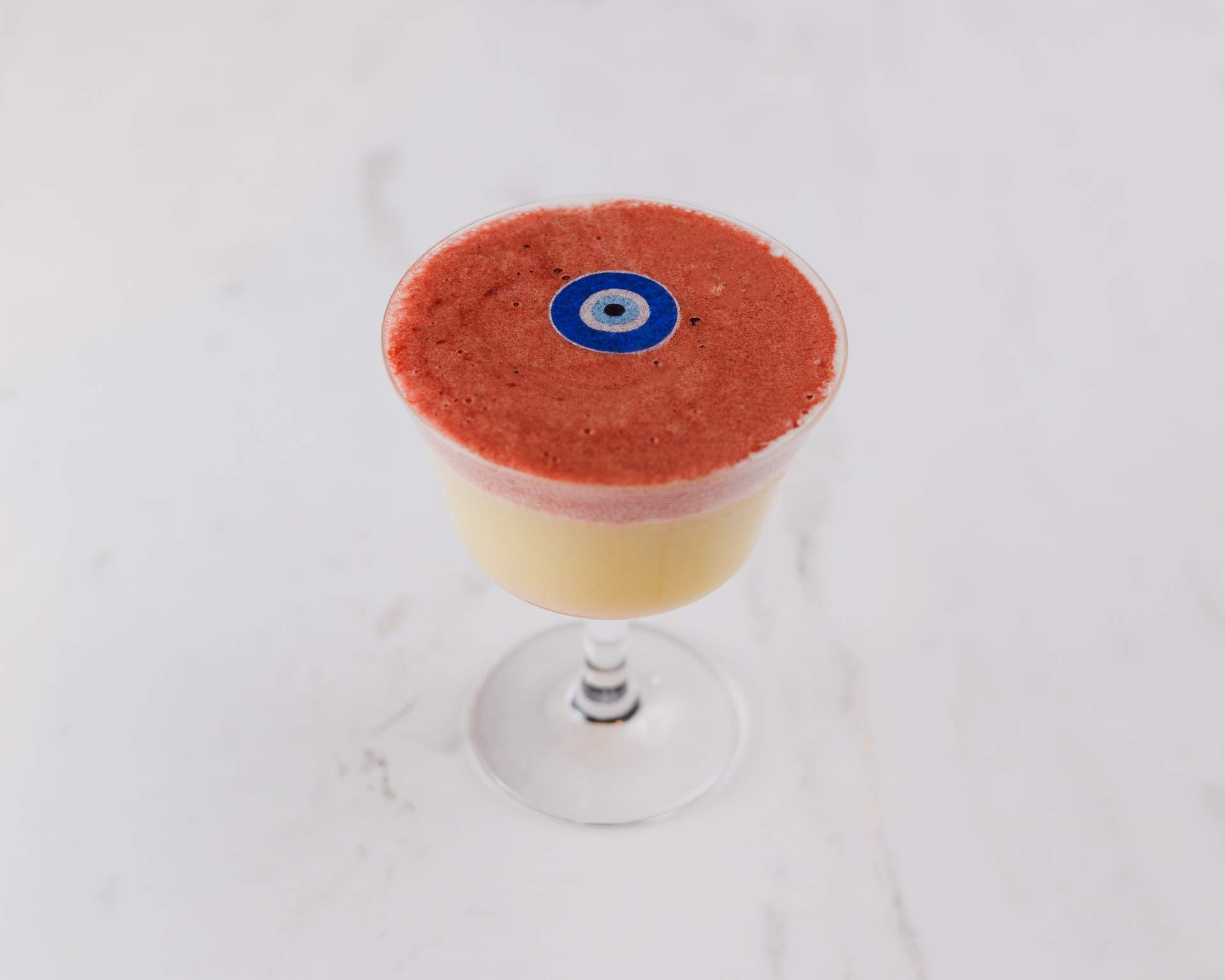
While not exactly ancient, the 60-bottle wine list put together by wine director Evan Turner (also of Krasi) was a long time in the making and spotlights varietals from Central Greece.
“We started reading, researching, sourcing, and importing from very early on,” Tsolakis says. “We’re taking a huge risk here by highlighting the Vlach culture and not having more name-brand wines from Crete or the Peloponnese, which are known for their citrus flavors.”
Bar Vlaha’s offerings include more stone fruit flavors thanks to colder weather in the central mountainous valleys. “Whether it be prunes, bergamot, smaller stone fruits, a pop of oregano, or sage—all of these different spices and herbs that you find in abundance in central Greece will be on the drink and food menus here,” Pelley says.
In addition, beverage director Lou Charbonneau creates cocktails with Greek spirits such as ouzo and mastiha (aka mastika), a sweet liqueur imbued with flavors of pine and herbs. They’re typically homemade digestifs, but at Bar Vlaha they’re used in blended cocktails.

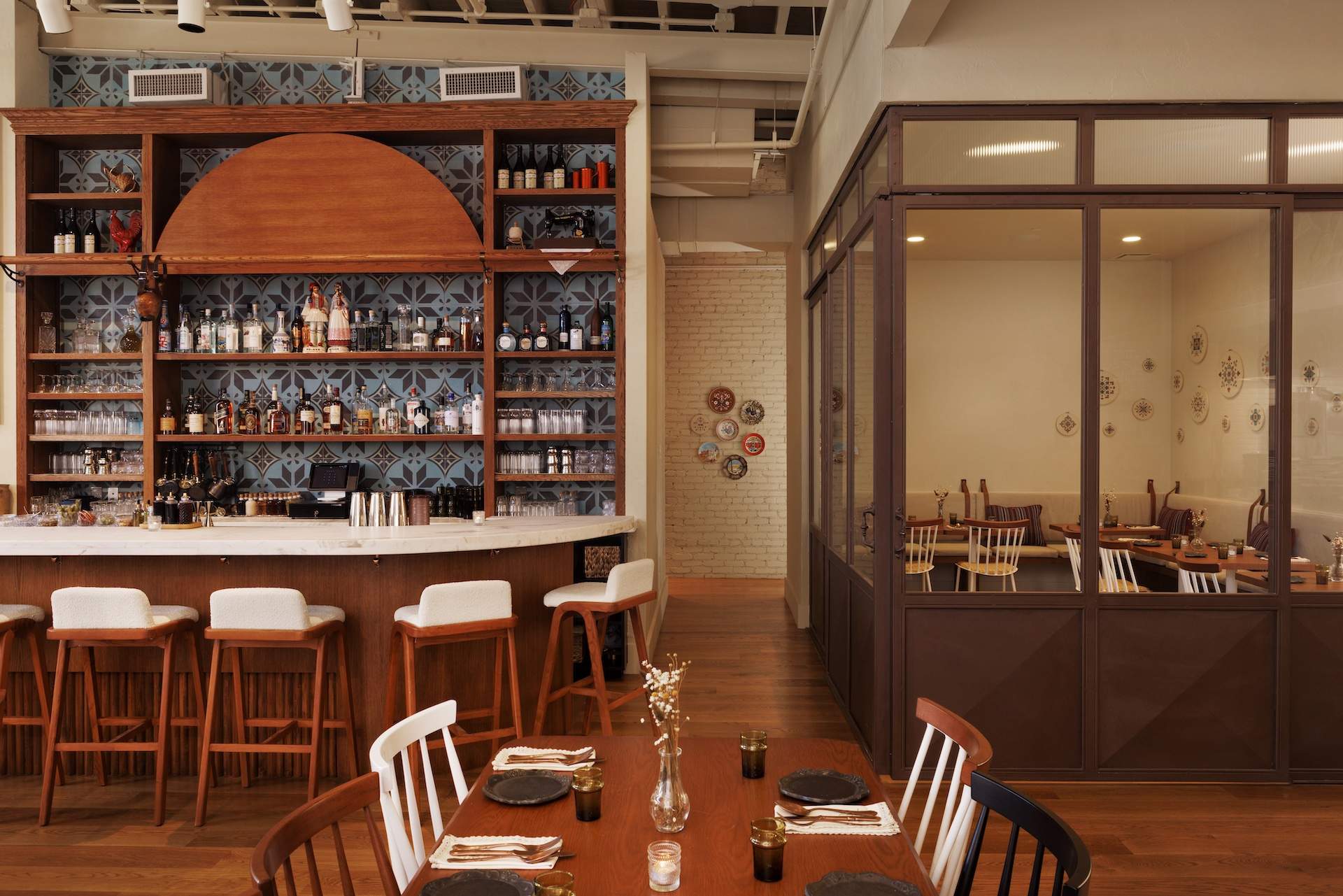
Brookline is the right fit for Bar Vlaha for a few reasons, Tsolakis says. Not only is it “more of a town vibe and not a city vibe,” he says—a metaphor for Greek inland life versus the bustling island life—but Brookline’s history also makes the restaurant’s location serendipitous.
In the late 1800s, Brookline’s Washington Square was where many of Boston’s dairy farmers and shepherds lived. “Plus, the environment of Brookline itself is really warm and welcoming, like the Vlach hospitality,” Tsolakis says.
The restaurant evokes the Greek countryside: the kitchen mimics an inland kitchen, constructed using the Koutounto method of building with stone. Greek interior designer Panos Efstratiou (who also designed the interiors for Hecate) reprised his partnership with Tsolakis for the new space, skewing less sexy and much homier. Utensils, plates, and furniture were imported whenever possible.
“You’ll find decor that you’d find in a traditional living room hutch, embroidered cushions, [and] portraits of the Vlach culture,” Tsolakis says. “It’s meant to be a nice, warm, [and] inviting space like you were going over [to] someone’s house for a family meal.”
Bar Vlaha has a private room that seats 16 and is ideal for large family meals or parties. It can be opened to join the rest of the restaurant’s 56 seats and 10 spots at the bar.
Pelley sees the new restaurant as a neighborhood hangout much like the tavernas he and the Bar Vlaha team visited for their concept research. “It’s very comfortable,” he says. “Making sure people from the neighborhood pop by, but that everyone is treated like a regular.”

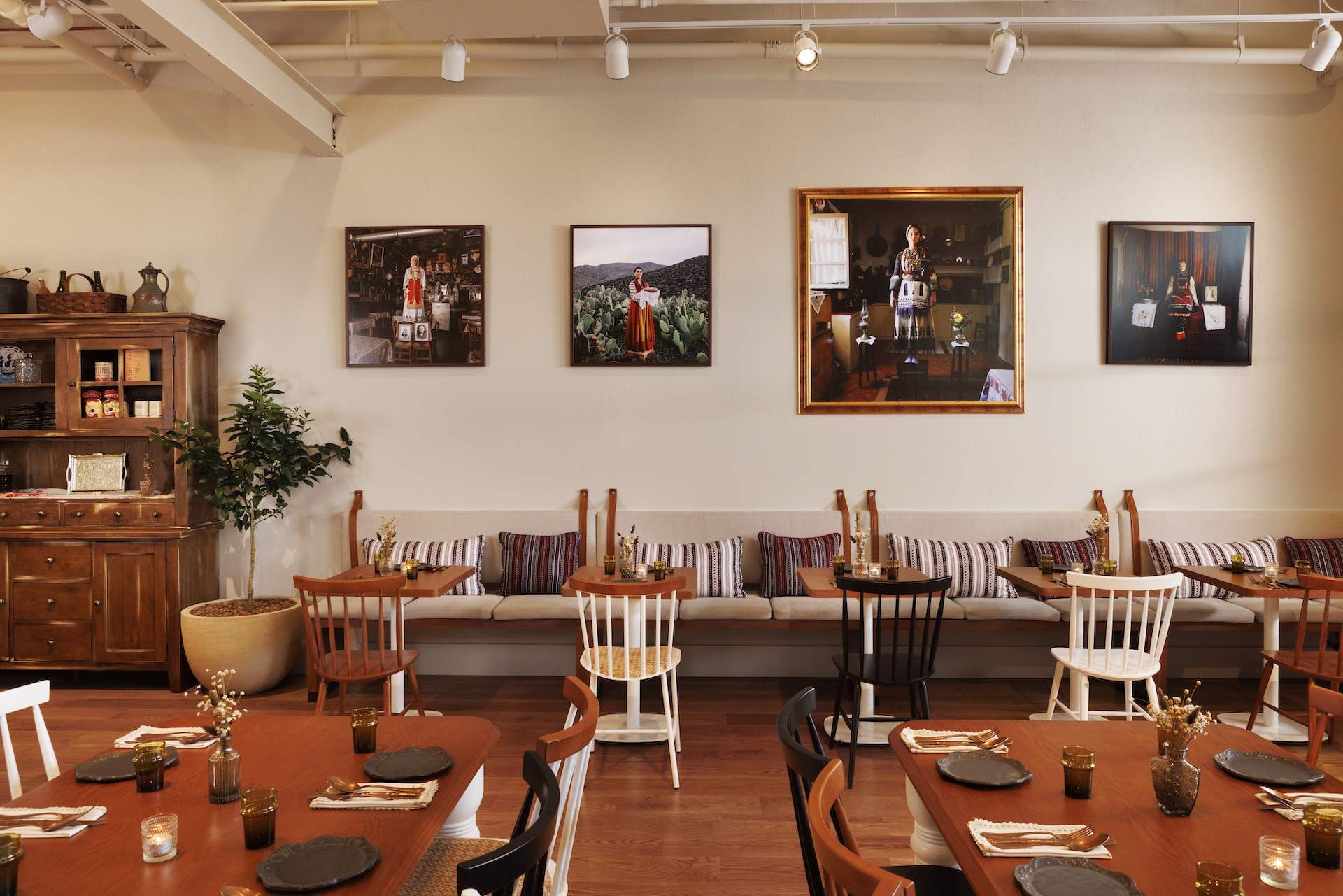
Bar Vlaha is open daily for dinner from 4 pm to 10 pm. Brunch will be introduced soon.
Carley Thornell-Wade is a Boston-based food, travel, and technology writer who’s been to more than 70 countries and delighted in tasting the regional delicacies of each.


